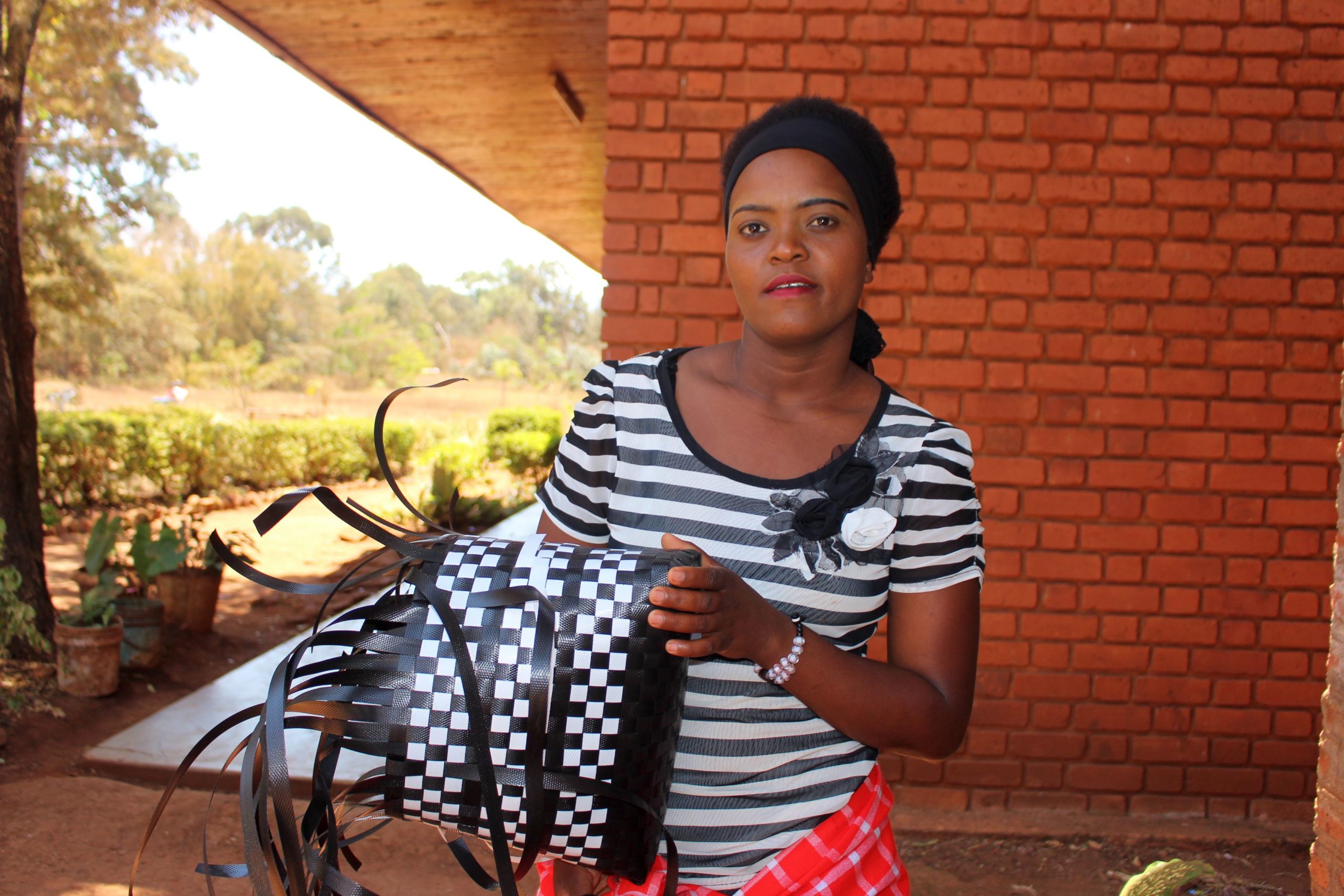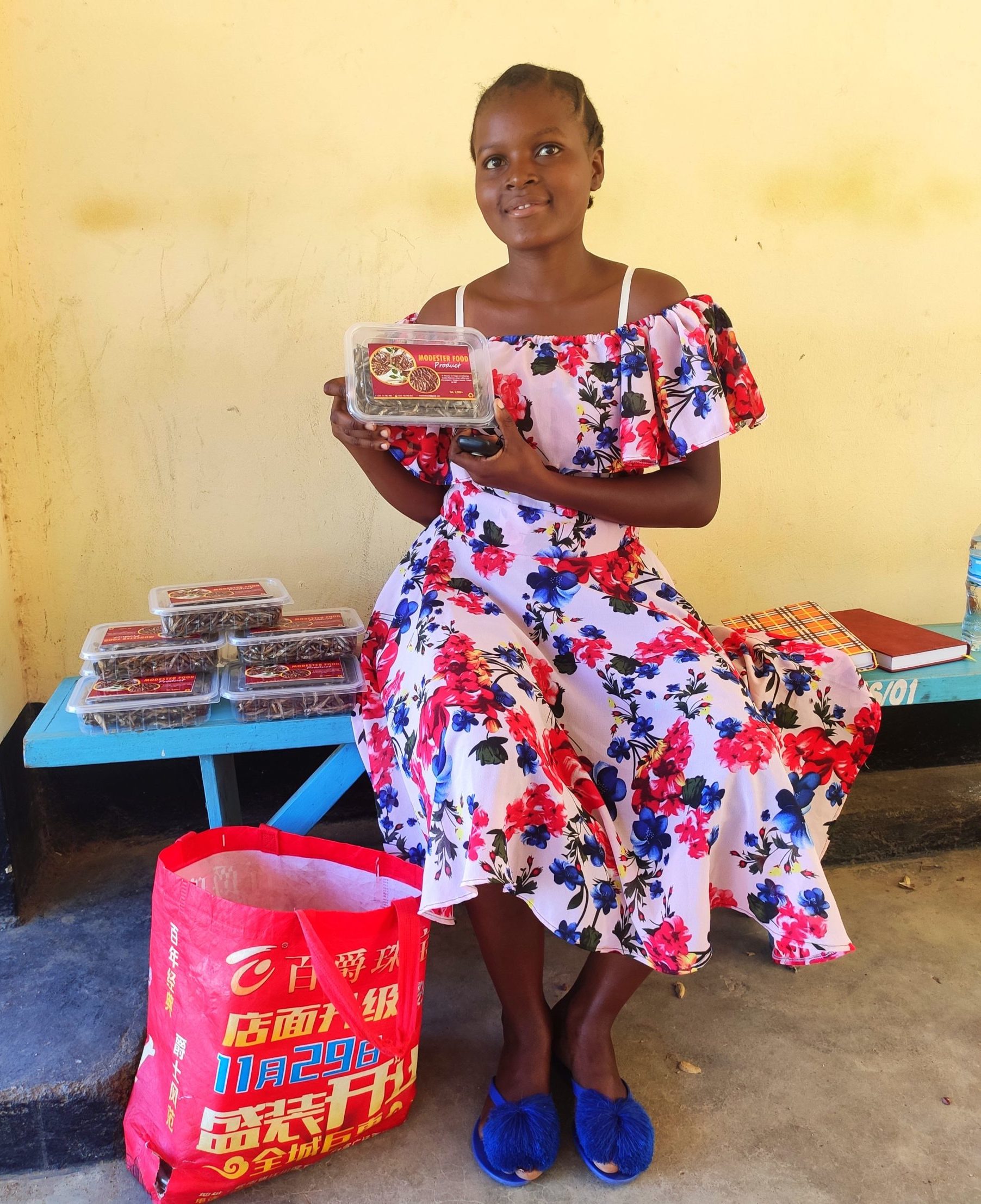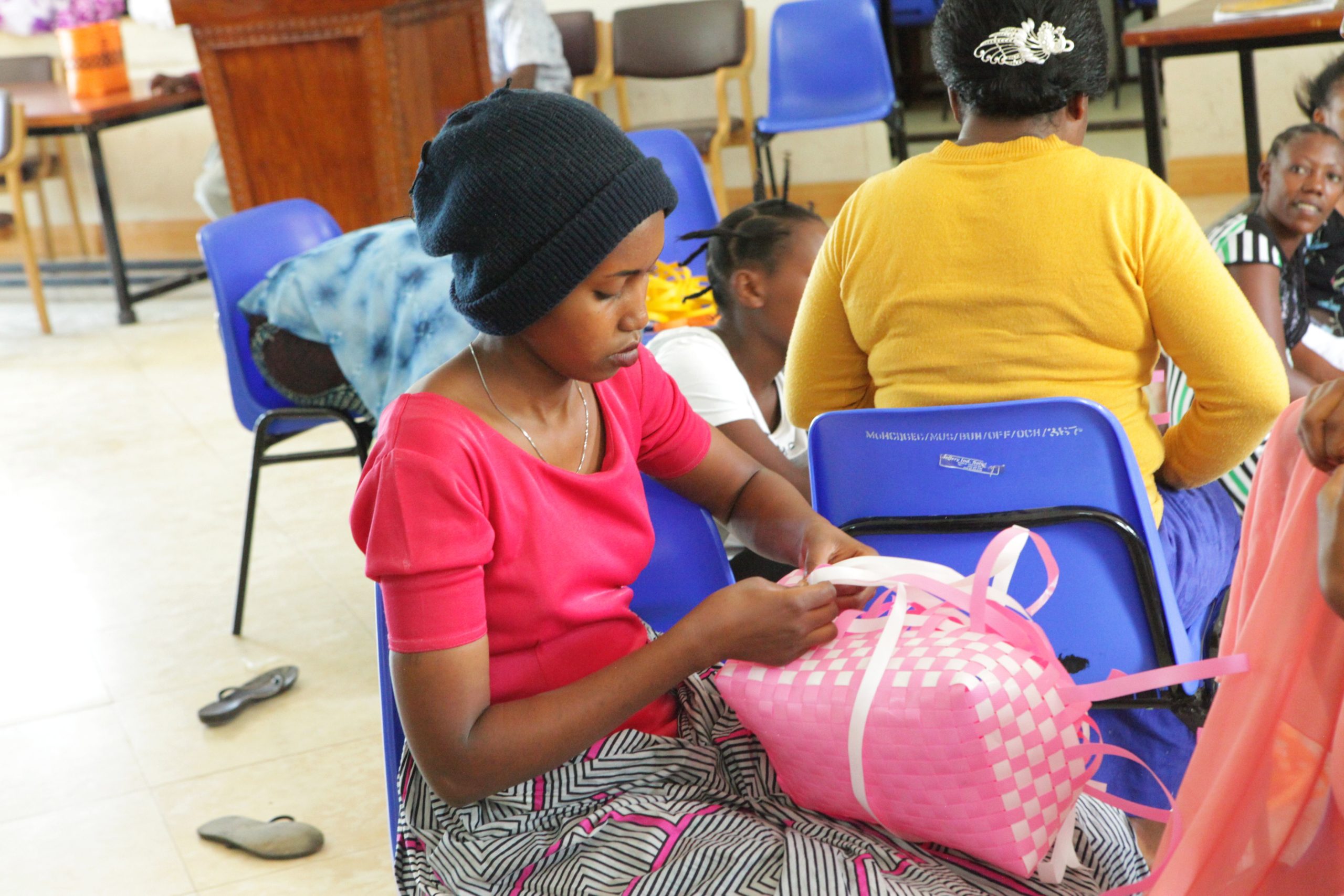From School Dropouts to Independent Entrepreneurs: A Tale of Three Young Women
THERESIA ASKWAR
Theresia was expelled from school when she became pregnant in 2016. While pregnant, and even after the birth of her child, Theresia encountered considerable stigma and condemnation from the community and says that she gave up on her dreams of a decent future.
However, in 2019, she was encouraged to enroll in Waache Wasome’s Out-of-School Support Group (OSSG) program, which helps young women like her get their lives back on track with training, support, and mentoring. The young women develop essential life skills, and gain knowledge about self-care and sexual and reproductive health as well as child care and nutrition, to support their babies.

Theresia was in the first cohort of 88 OSSG members who participated in skills-based training that year. During the 10-day program, she learned range of skills — basic poultry-keeping, basket weaving, beauty care, and how to make home decorations, baskets, liquid soap, mosquito repellent, and lubricating oil.
“The basket-making skill is a blessing to me, and the training enabled me to rebuild my shattered dreams,” Theresia says. “Now, I have skills and an income generating activity.” In just her first three months of weaving and selling baskets, Theresia earned TZS 131,000 ($57) — and hasn’t looked back since! By 2021, she was regularly earning TZS 60,000 ($26) per week. And, with her improved skills and confidence, Theresia now trains other women in basket making, charging TZS 80,000 ($35) per person for a three-day session. She was recently by the Waache Wasome project to run a workshop for 39 LIMCA members.
“Waache Wasome has restored my dreams,” Theresia says. “They have transformed me from a dropout girl into an entrepreneur, a trainer, and a good mother!”
MODESTER CHACHA MWITA
In her second year of secondary school in 2015, Modester had to drop out school because of chronic illness. Confined at home, with nothing to occupy her, her family relationships suffered and she says she “felt very small and defeated.”

Today, however, 20-year-old Modester is a successful business woman and role model to her peers — as a result of joining a Waache Wasome Out-of-School Support Group (OSSG) in 2019 where she learned about communication, goal-setting, and planning — and also participated in skill-based training in sardine processing and basic entrepreneurship.
Soon after the training, Modester was up and running! With 25,000 Tanzanian shillings (TZS) — about US$11 — as initial capital, she bought a small bucket of sardines from the fishermen who ply the shores of Lake Victoria, then dried and sold them at a profit. Bantwana staff and project volunteers mentored Modester and connected her with the municipal Fisheries Department for further advice and leads. Soon, Modester branched into making fried sardines — and began receiving orders from all around Musoma Municipal Council and even from out of town.
Realizing the larger market opportunity, Modester designed a brand identity, christening her business “Modester Products.” She now sells branded packets of fried and spiced sardines at TZS 2,000 (about 85 cents US). “My working capital increased from just 25,000 to more than 200,000 ($87) in a span of just two months,” Modester says. “This is a good indication that I am now [operating] at another level.”
“I am very grateful to Waache Wasome, because the project has empowered me and other marginalized young girls who would otherwise be silent sufferers because of family, culture, and traditions.”
LEAH SOSPETER
Musoma Municipal Council
After Leah dropped out of school in Form II in 2016 due to pregnancy, she ran away from home. When things calmed down, Leah returned to her family (which includes parents and younger brothers and sisters) — and joined a Waache Wasome Out-of-School Support Group.
To start with, she attended the life skills training sessions — a mandatory stage before moving on to skills-based training. In October 2019, on the basis of her regular attendance and participation in group activities, Leah was selected to attend the same 10-day income-generating skills training program that Theresia participated in. She performed very well during the training and the project helped her get an internship at a salon in Musoma MC.
While apprenticing and learning more skills, Leah dreamed of owning her own business rather than depending on others for employment. “I wished to own my own business and become financially independent,” she says.
After just three months at the salon, Leah began producing a variety of liquid soaps for washing hands, clothing, and utensils. She christened her products Blena, and packed them in one-liter bottles that sell for TZS 3,000 (US$1.30) each. Like Modester, Leah also more than doubled her working capital. “Business is good and I am becoming well known with my product,” she says.
Leah is working hard to increase production so she can become an established business woman. As a next step, she ordered basket making materials from Arusha and has been producing reusable baskets for sale.
